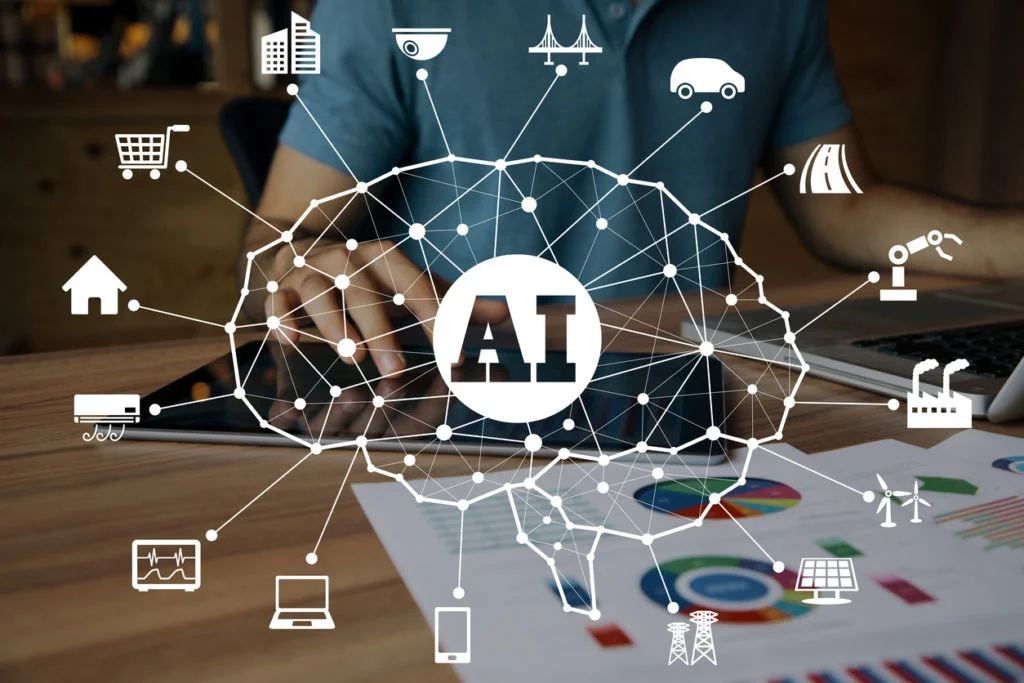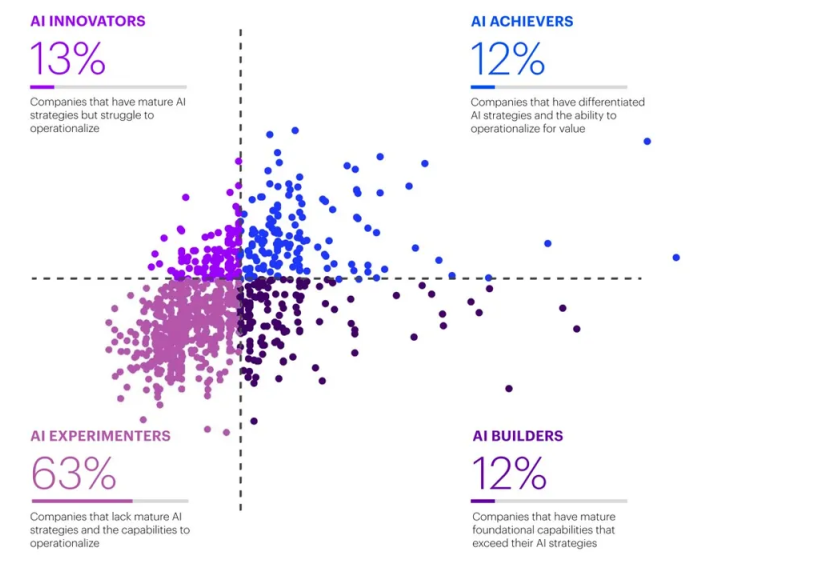Businesses investment in AI is on the rise and it is increasingly coming from organizations outside of the tech sector. According to a recent report, the Global Artificial Intelligence service market, which consists of AI software tools and services, is expected to grow from $1.52 billion in 2018 to $10.88 billion by 2023, representing a compound annual growth rate (CAGR) of 48.2%.
As the number of AI success stories grow, the future is clear: businesses need AI in order to survive. Here is why businesses risk failure if they don’t adopt AI.
Real-time Decision Making Becomes the Standard
AI systems have expanded from providing simple augmentation and automation to becoming a strategic differentiator for business. In a real-time world, companies must be able to deliver solutions that are accurate, fast, and flexible enough to keep up with changing business conditions. It’s hard to ignore the value that AI can deliver when it comes to speed.
A recent Enova Decisions survey found that businesses currently rely on four key technologies in order to automate decisions: business process management (81%), business rules (75%), statistical analysis tools (75%) and data warehouses (74%). While businesses expect to greatly increase the number of decisions that are automated within the next two years, a full one-third of respondents say that they expect to fully or partially automate the majority of their operational decisions within the next two years.
With AI companies can make business decisions faster, based on timely and accurate insights. Already, AI is helping companies move towards real-time decision-making. A few examples of real-time decision-making use cases that have already been made possible thanks to AI and machine learning are personalization and fraud prevention.
With AI technology capable of enabling real-time automation decision-making in ways that weren’t possible before, there is no longer any reason for companies to not to benefit from optimizing their operations. As a result, the ability to predict, prevent, and adapt will become the difference between failure and success.
Democratization of Decision-making Power
AI technologies provide managers and employees alike with accurate data and predictions enabling the right decisions to be made by employees at all levels of the organization. Simply implementing AI systems while only providing centralized teams of data scientist with access, does not necessarily generate better a bottom-line, according to recent research.
However, as the market for AI technologies matures, companies will start to adopt AI in ways that empower employees at the same level as it does for managers. No longer will companies be inhibited by bureaucratic processes that require authorization from top-level managers before action can be taken.
As companies adapt their businesses to integrate AI systems, employees will also be given the skills to interpret data. This makes AI-driven businesses fundamentally more agile and responsive to market opportunities and updates than businesses that are not utilizing at AI.
AI Creates a Lasting Competitive Advantage
AI is capable of achieving incredible accuracy via deep neural networks, which is something that was previously impossible. A McKinsey study found that in 69% of cases, deep neural networks can be used to improve performance beyond any other analytical technique.
In addition, AI systems continue to become more accurate the longer they are used. That means that businesses that become early adopters of AI systems have a greater potential to improve their operations as compared to late-stage adopters of AI. Having the best data and most well-trained AI systems will always set a business apart from the competition, even if everyone else in the industry begins to apply similar techniques.
Therefore, exploring the use of AI for business can create a significant competitive advantage. The businesses that push forward to develop and fine-tune their AI infrastructures now are very likely to become the unicorns of their industries.
AI-Driven Business Insights and Revenue Growth
While AI technology offers a scalable way for businesses to deal with increasing volumes of data, it also provides the capabilities need to mine that data for relevant business insights. Furthermore, the more data that AI systems can collect and analyze, the more powerful and intuitive they become.
A study of 3,073 executives done by McKinsey, confirmed that 30% of early AI adopters, those companies who are using AI at scale or in core processes, say that they have already achieved increases in revenues. They are also leveraging AI with an effort to gain market share or expand their products and services.
Additionally, early AI adopters were 3.5 times more likely to report that they expect to growth in their profit margins by up to 5 points more than industry peers.
How Can Businesses Take Advantage of AI?
AI is no longer just a high-tech tool, but a necessity for creating a flexible, long-term business strategy. Businesses already have a wealth of data that they can put to use to effectively analyze and improve their business workflows. Through continuous evaluation, AI allows businesses to stay ahead of market trends and stand out against the competition.
There is certainly a lot of buzz (and potential profits) surrounding AI solutions across many industries. However, the question then becomes not whether AI should be used, but how to use it effectively.
Achievion can help you uncover how AI solutions can be adapted to the specific needs of your business. To learn more about improving your business with AI, contact us today for a free consultation and let’s discuss your strategic goals.









